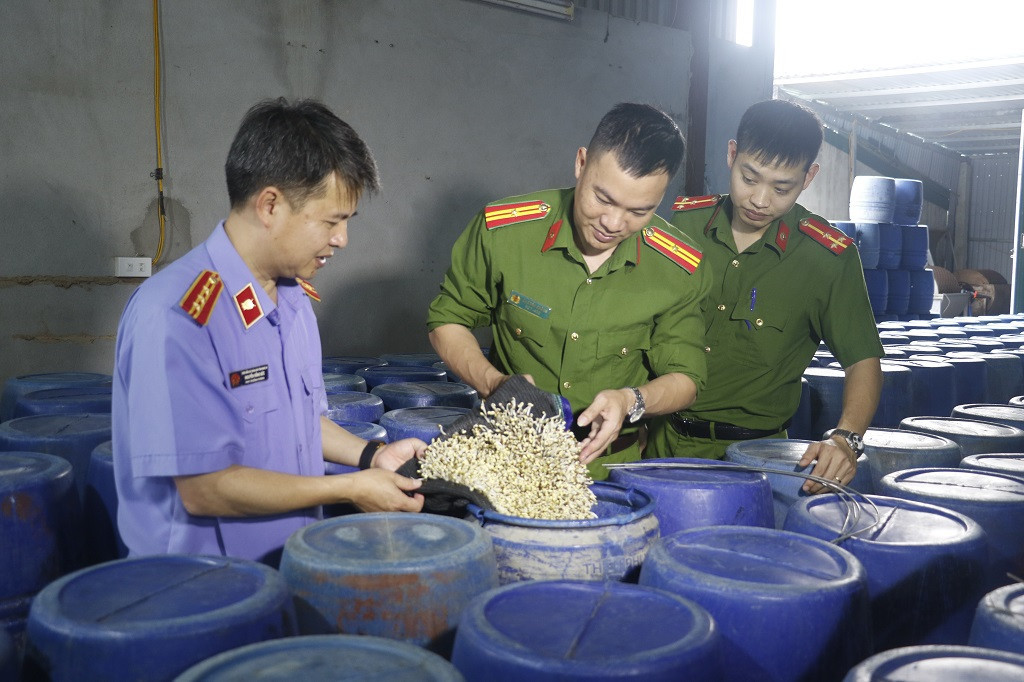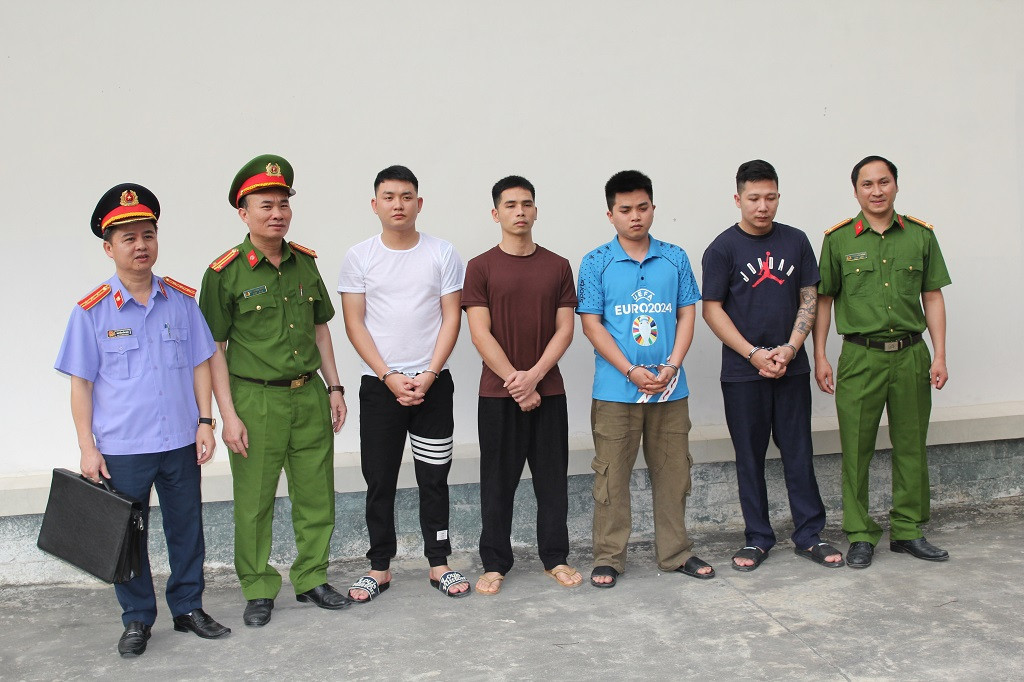On average, each day, local producers in Nghe An and neighboring provinces distribute 3 to 5 tons of bean sprouts soaked in a chemical solution known as "candy water" to wholesale markets.

On April 21, the Anti-Corruption, Economic Crimes, and Smuggling Division of Nghe An Provincial Police announced that it is continuing to investigate a food safety violation case involving four bean sprout production facilities using "candy water" - a solution containing the banned chemical 6-Benzylaminopurine.
Four suspects have been prosecuted and temporarily detained, including Luu Manh Huong (32) and Luu Van Trung (28), both from Truc Ninh District, Nam Dinh Province; and Tran Khac Duy (35) and Nguyen Van Huong (27), both from Vinh Tan Ward, Vinh City.
Initial findings indicate that since 2024, the suspects have used “candy water” to produce and distribute over 3,500 tons of chemically treated bean sprouts to the market.
Each facility produced 3 to 5 tons of bean sprouts per day, which were sold to traders in wholesale markets in Nghe An and nearby provinces at prices ranging from 10,000 to 15,000 VND per kilogram (approximately 0.40 to 0.60 USD/kg).
During the investigation, police seized nearly 2,000 jars containing various types of bean sprouts, totaling about 25 tons, along with 25 liters of pure “candy water” solution, 150 liters of mixed chemical solution used for production, and other related evidence.

As the investigation expanded, police revealed that to make the bean sprouts appear larger, thicker, with shorter roots and more appealing for higher profit, the suspects used “candy water” to soak and spray the sprouts during cultivation.
To increase production volume, extend shelf life, and boost profits, the suspects regularly applied this chemical solution throughout the growing process.
To avoid detection and distribute the tainted product, the suspects employed highly deceptive tactics. They operated in remote areas far from residential zones, setting up operations in secluded locations that were tightly enclosed with tarps, sheet metal, and mesh to prevent outsiders from seeing inside. They worked mostly at night or in the early hours of the morning.
According to their statements, the "candy water" chemical was purchased online from an unidentified man whose background and location remain unknown.
Authorities are continuing to investigate and clarify further details of the case.
Thien Luong